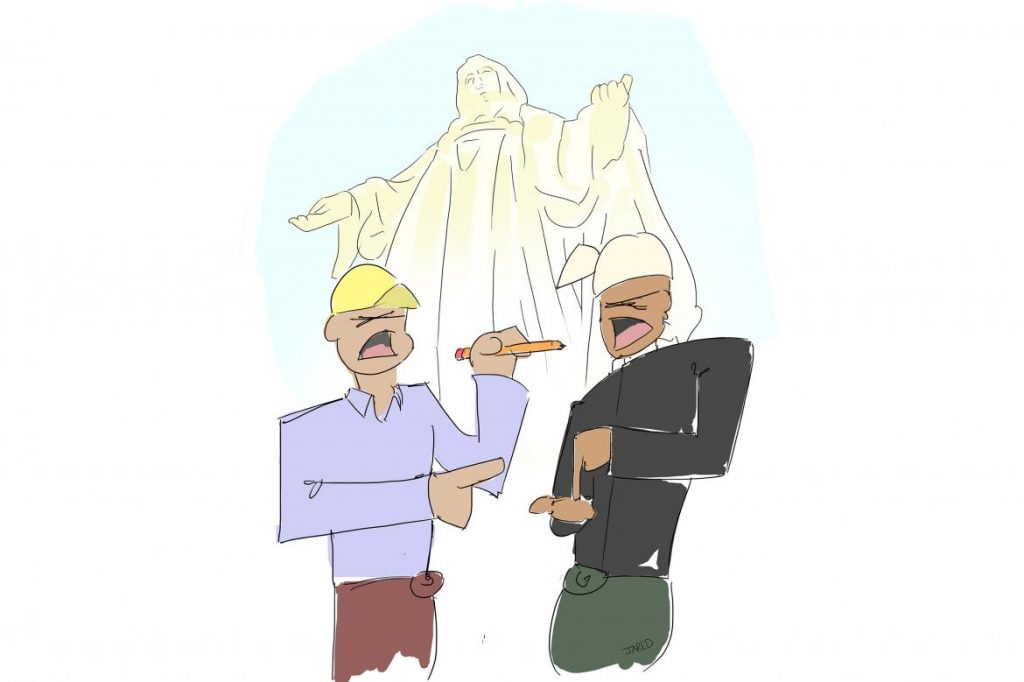Pope Francis has a duty to address injustice, but he also has a duty of care to Catholics across Myanmar, and has to consider the effect of his words on the people of his faith.
IT’S NOW common to hear people in Myanmar complain about the perceived “bias” of the international media’s coverage of the conflict in Rakhine State. Probe a little deeper into this claim and it’s becomes clear that it’s often not so much about the content of the media coverage as the level of focus on Rakhine.
This may seem like an unreasonable criticism. There are very valid reasons why the media has dedicated so much attention to Rakhine State. The scale of the humanitarian crisis in Bangladesh – a crisis for which Myanmar bears significant, if not total, responsibility – is almost unprecedented. That’s before you consider what actually unfolded in Rakhine State, when the security forces rolled down the shutters and Muslim villages went up in smoke, one after another.
But at times the fixation on Rakhine can be unhelpful. For weeks leading up to Pope Francis’ visit to Myanmar, the only question being asked in the media was whether he would use a single word: “Rohingya”.
The local catholic leadership advised against doing so and Pope Francis – at least in his public comments – adhered to their advice.
To some it was a backdown, a display of weakness that will only embolden the generals.
Support more independent journalism like this. Sign up to be a Frontier member.
But Frontier argues that it was sound diplomacy. Any disappointment should be blamed not on the pope but on those who have created such a toxic climate that the pope was not able to speak openly.
There was little to gain from further stoking tensions at a time when the government is about to embark on a politically sensitive mass repatriation effort. There are many in this country who want the government to fail in this endeavour. Nobody should give this group of spoilers further ammunition with which to achieve their goals.
It will be a welcome day when any person in Myanmar can use the ethnic label of their choice. It is clear though that day is still some way off. It will be reached not through antagonising those who hold differing views, but by showing compassion and understanding while holding true to the values that one thinks are important.
In his public addresses, Pope Francis preached a message of love and peace. It was a reminder that Myanmar’s transition will require many wounds to be healed, not just those of the Rohingya.
Pope Francis has said that, in private, he delivered a more blunt message to the leaders of Myanmar, Senior General Min Aung Hlaing and State Counsellor Daw Aung San Suu Kyi in particular. In Bangladesh, he also got the chance to talk with Muslim refugees who had recently fled Myanmar. By all reports this was an emotional meeting.
The pope was put in a difficult – some would say impossible – position by the media attention ahead of his visit. What should have been a moment to savour and enjoy – a moment that would have seemed all but impossible a few years ago – was overshadowed by the politics of a single word.
Expecting the leader of a minority group to speak out on behalf of another is unfair. Although not marginalised to the extent of their Muslim brothers, the Christian community still occupies a precarious position in Myanmar. Yes, Pope Francis has a duty to address injustice. But he also has a duty of care to Catholics across Myanmar, and has to consider the effect of his words on the people of his faith.
Francis’s visit highlights once again the need for those in positions of power inside Myanmar to confront the country’s intolerance of and human rights failings towards minority groups of all religions and ethnicities. They are the ones with both the authority and the responsibility to shape the country’s future for the better.
This editorial appears in the December 7 issue of Frontier.







